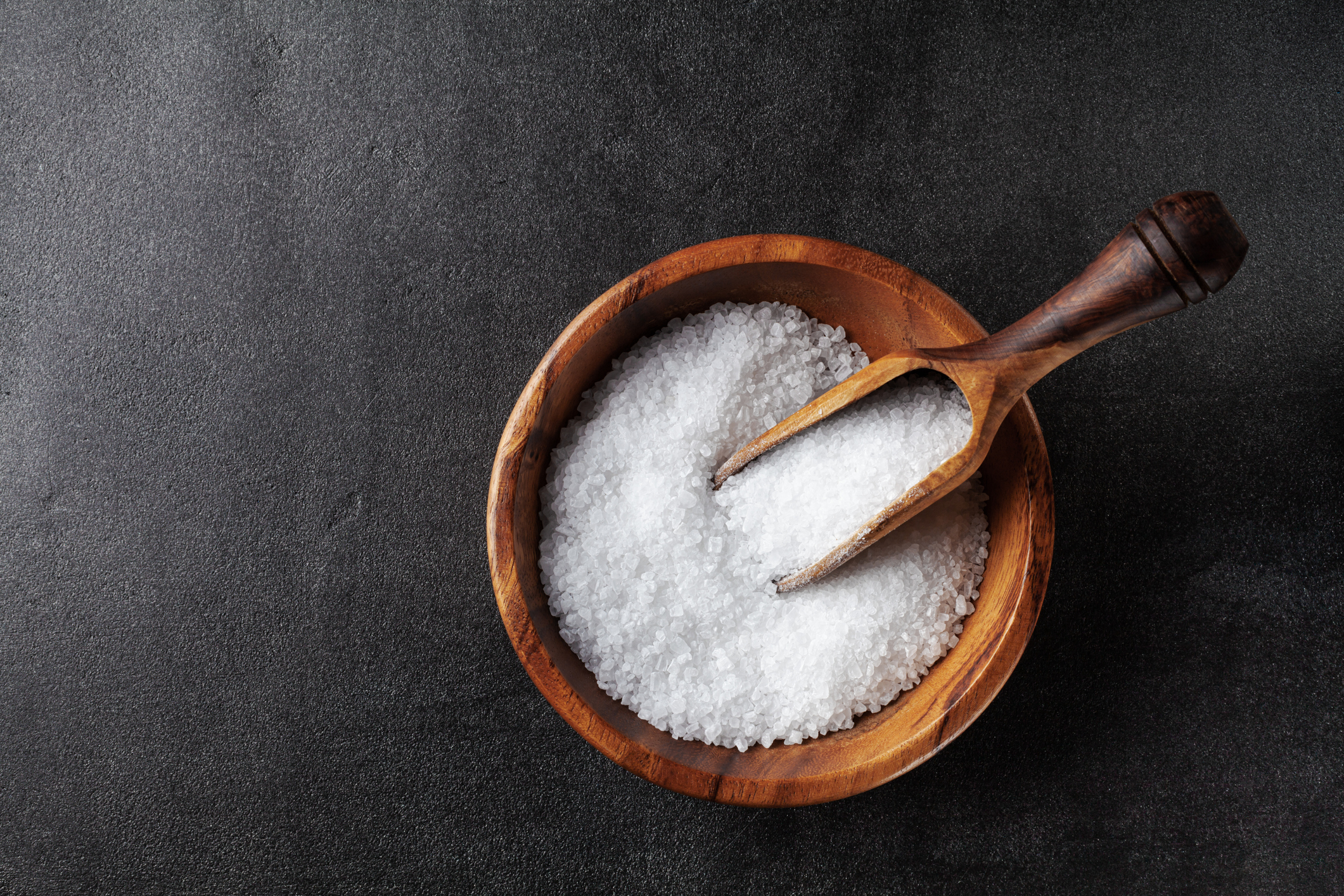Get Easy Health Digest™ in your inbox and don’t miss a thing when you subscribe today. Plus, get the free bonus report, Mother Nature’s Tips, Tricks and Remedies for Cholesterol, Blood Pressure & Blood Sugar as my way of saying welcome to the community!
For better blood pressure and a healthy gut, optimize your salt intake

If you get diagnosed with high blood pressure, the first advice you’ll get from your doctor is to reduce your salt intake. That’s because, at one point, several large-scale studies showed pretty conclusively that high-salt diets were linked to high blood pressure.
More recently, we’ve learned that the connection between salt and blood pressure isn’t so cut and dry…
A large 16-year study published in 2017 found that while eating too much salt could lead to high blood pressure, so could eating too little. According to this study, there’s a salt sweet spot that you need to hit to keep your risk of high blood pressure down. What is this salt sweet spot?
Somewhere between 2,300 and 2,500 mg of salt per day.
And a new study shows that if you get your salt intake just right, you’ll not only have better blood pressure but a healthier gut to boot.
Salt boosts gut and blood pressure-friendly short-chain fatty acids
Researchers from Augusta University in Georgia just performed a study on 145 adults with untreated high blood pressure. They asked study participants to lower their salt intake to more closely match the recommendations of the American Heart Association — which suggests people consume about 2,300 mg of sodium per day.
Some of the study participants received salt tablets daily and others received a placebo. After six weeks, those who consumed less salt received some major health benefits…
First, they experienced decreased blood pressure and more compliant blood vessels… which is great news for anyone struggling with hypertension. But researchers also noticed that eating less salt increased levels of short-chain fatty acids (SCFAs) in the blood.
SCFAs are well-known indicators of good gut health because they feed the cells in your gut. In fact, they’re these cells’ main source of food. SCFAs also strengthen your gut barrier to prevent leaky gut. And they’ve been linked to healthier blood pressure before too…
You see, these small metabolites leave the gut and circulate throughout your body, binding to receptors in your blood vessels and kidneys. When they do that, they help regulate an enzyme in your kidneys called renin that plays a role in blood pressure control.
This also isn’t the first study to demonstrate the connection between salt and gut health before. A 2017 study, for example, showed that a high-salt diet depleted Lactobacillus murinus in the guts of mice. These bacteria are known to curb inflammation, so having less of them is bad. In mice, reducing this bacterial strain in their guts caused their blood pressure to go up, but once they received the microbe again, blood pressure went back down.
Striking the best salt balance for healthy blood pressure
Most American adults consume about 3,400 milligrams of salt a day. Like I mentioned earlier, the American Heart Association recommends a target closer to 2,300. But you want to be careful not to go too far on your low-sodium kick…
You remember that 2017 study I mentioned earlier? The one that showed too much salt and too little salt are both bad for your blood pressure? Well, in that study researchers found that eating less than 2,500 grams of sodium per day can create blood pressure problems too. In fact, in that study, people who consumed less than 2,500 grams of sodium per day had higher blood pressure than those who ate higher quantities.
That’s because researchers found that there’s a “J-shaped relationship” between sodium intake and cardiovascular risk… which basically means you don’t want to be on either end of the curve… but right in the middle. That middle range falls somewhere between 2,300 and 2,500 mg of sodium per day.
You’ll also want to pay close attention to your potassium, magnesium and calcium intake. Higher intakes of these minerals are all linked to better blood pressure as well.
Editor’s note: Are you feeling unusually tired? You may think this is normal aging, but the problem could be your master hormone. When it’s not working, your risk of age-related diseases skyrockets. To reset what many call “the trigger for all disease” and live better, longer, click here to discover The Insulin Factor: How to Repair Your Body’s Master Controller and Conquer Chronic Disease!
Sources:
- High-salt diet impacts health of gut microbiome — MedicalXpress.
- Modest Sodium Reduction Increases Circulating Short-Chain Fatty Acids in Untreated Hypertensives — Hypertension.
- High blood pressure: Sodium may not be the culprit — Medical News Today.
- Short Chain Fatty Acids (SCFAs)-Mediated Gut Epithelial and Immune Regulation and Its Relevance for Inflammatory Bowel Diseases — Frontiers in Immunology.













